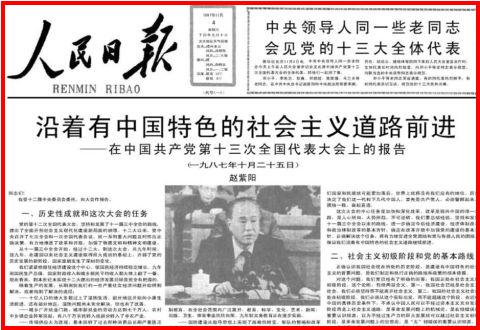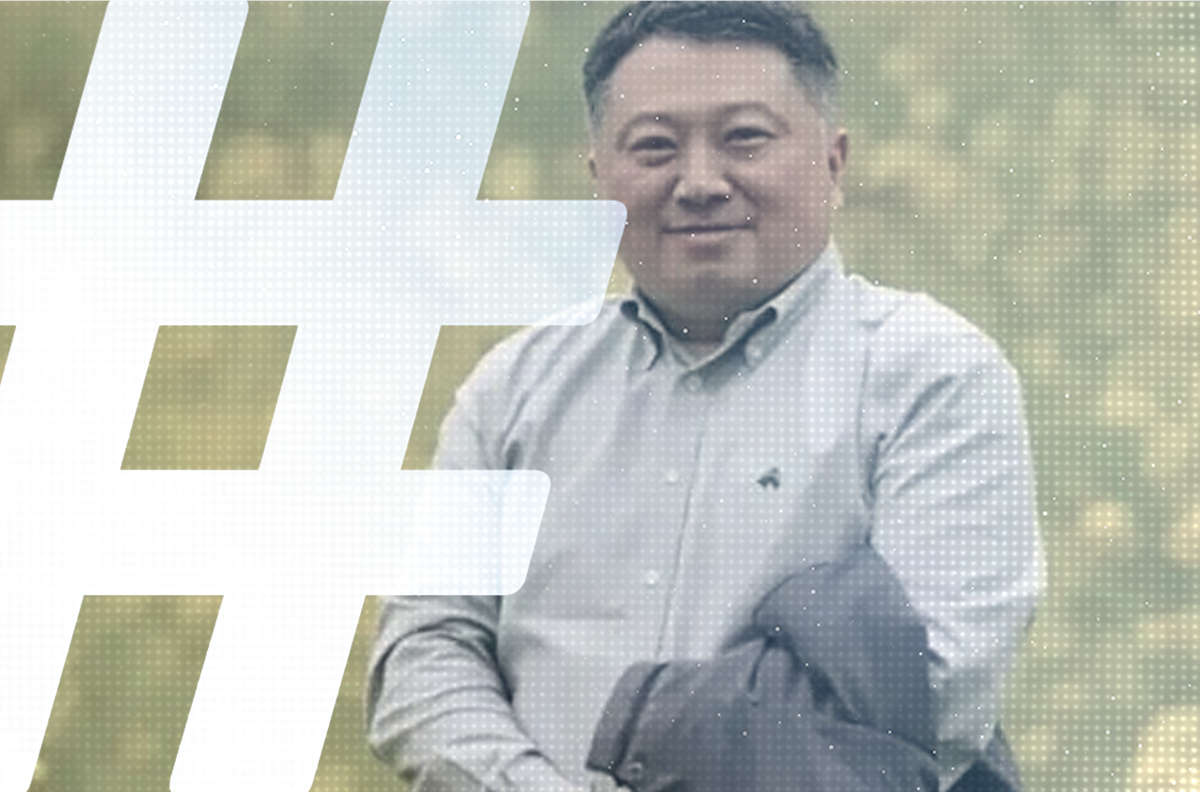
One question on everyone’s mind as we approach next month’s party congress is whether there will be any breakthroughs on political reform. There are few answers at this point about Hu Jintao’s specific agenda on political reform. But we can at least prepare ourselves to ask the right questions.
CMP analysis of “political reform” coverage in the official People’s Daily bears out what most would probably already assume about the recent history of political reform in China – the issue grew louder in the mid to late 1980s and shrank to a whisper after the crackdown on democracy demonstrators on June 4, 1989:
The term we’ve searched here is “political [system] reform” (政治体制改革), a term unambiguous in its meaning and essentially what Deng Xiaoping called “reforms to the governance system of the party and government” (党和国家领导制度的改革). The term does not mean simple reform of personnel systems (公务员制度改革) – things like examinations for government employees – or the building of a legal system (法制建设). So as we train our eyes on the 17th National Congress, “political reform” (政治体制改革), or zhengzhi tizhi gaige, is one critical term we should be on the lookout for.
We can begin by asking whether “political reform” will become a key topic (主议题) at the congress. One simple way to gauge this is by looking at whether or not the term makes it into one of the smaller section heads of Hu Jintao’s political report (政治报告).
The term appeared, for example, at the top of the fifth section of Zhao Ziyang’s political report to the 13th National Congress in 1987: “Concerning Political Reform.”

[Zhao Ziyang’s political report to the 13th National Congress in 1987 lays out the specific rules on election of party officials, such as the differential rate.]
In former President Jiang Zemin’s report to the 14th Congress in 1992, the second section, “Key Tasks for Reform and Building in the 1990s”, said “[we] must work hard to realize 10 key tasks” (必须努力实现十个方面关系全局的主要任务) – the sixth of these was: “vigorous promotion of political reform to make relatively major strides in the development of socialist democracy and rule of law” (积极推进政治体制改革,使社会主义民主和法制建设有一个较大的发展). The term graduated to one of the smaller section heads in Jiang’s report to the 15th Congress. Section six was called: “Political Reform and the Building of Democracy and Law” (政治体制改革和民主法制建设). Five years later, in Jiang’s third political report, the term moved up to the fifth section: “Political Building and Political Reform” (政治建设和政治体制改革). [Click here for a record in Chinese of past political reports].
It is not enough, of course, that the term appears in a political report. After all, there is a world of difference between Zhao Ziyang and Jiang Zemin on the question of political reform – as the graph above makes clear. There are minute jumps in use of the term “political reform” corresponding to the 15th and 16th congresses, but they are shallow and short-lived.
We can conjecture that in Hu Jintao’s report “political reform” will appear in a smaller section head just as it did for the 13th, 15th and 16th congresses. But the more important question is how exactly the term will be used. What terms will accompany it? What terms will keep it in check, like chaperones at each elbow? We have to look, in other words, at context.
As was the case with Jiang Zemin’s political reports, will Hu’s report pin down “political reform” with other phrases like “strengthening party governance” (加强党的领导), “stability before all else” (稳定压倒一切), or “opposing westernization and differentiation” (反对西化, 分化)?
How will Hu Jintao’s formulation of “political reform” differ from what we saw with other congresses since the 13th? And will the president introduce any real roadmaps or timelines, or take any real steps, toward political reform?
One key specific question is whether Hu Jintao’s political report will make a point of referring to the “Four Basic Principles”. That’s a question for another article.
(Qian Gang, September 21, 2007)
[Translated by David Bandurski]
Previous 17th Congress article: “What Will Hu Jintao Say in His Political Report?“
[BACKGROUND]
The idea political reform in China, or zhengzhi tizhi gaige (政治体制改革), emerged in the reflection, reassessment and settling of accounts that came with the end of the Cultural Revolution. In 1979 calls for political reform came both from within and outside the CCP. Inside the party, Mao Zedong’s feudal and fascist methods were criticized during the so-called “theory discussion sessions” (理论务虚会). Outside the party, the notion of the “fifth modernization”, democracy, emerged on a wall poster during the brief burst of outspokenness known as the “Democracy Wall” (a response to Deng Xiaoping’s Four Modernizations). A number of important reform journals (such as Chen Ziming’s The Spring of Peking) were posted on the “democracy wall” in Beijing’s Xidan District.
On August 18, 1980, Deng Xiaoping made a famous speech called “Reforms to the Governance System of the Party and the Government” (党和国家领导制度的改革) during a meeting of China’s Political Bureau (中共中央政治局扩大会议). Deng denounced over-concentration of power in China’s leadership as well as “patriarchal methods, life tenure in leading posts and privileges of various kinds” (家长制、终身制和形形色色的特权现象). He also attacked the evils of Stalinism.
As a number of important activists, including Chen Ziming (陈子明), Hu Ping (胡平) and Wang Juntao (王军涛), electioneered for People’s Congress posts in various districts in Beijing (a movement initiated by university students), these “candidates” intensified calls for political reform.
As the workers’ movement in Poland, led by Lech Walesa, challenged the leadership of the Communist Party there, however, Chinese leaders — notably Chen Yun (陈云) — said calls for democratic reforms in China needed to be stopped to prevent similar unrest at home. In 1980, Leftist official Hu Qiaomu (胡乔木) called on leaders to prevent dissemination of Deng Xiaoping’s speech on political reform (parts of the speech appeared in 1983, and again in 1987), which was seen as offering encouragement to reform proponents [More on Hu Qiaomu at “Letters from China“].
[Deng Xiaoping’s speech on political reform is published in the official People’s Daily in 1987.]
In 1983, a speech by Hu Yaobang raised political reforms as a key part of “comprehensive and systematic” reforms. But political reforms were never rolled out, and Hu Yaobang was subsequently purged in the Anti-Bourgeois Liberalization Campaign (反资产阶级自由化) of 1987.
On September 4, 1986, the official People’s Daily reported Deng Xiaoping’s meeting with the head of Japan’s Komei Party and their dialogue about how “not carrying out political reforms would impede productivity and development” (不搞政治体制改革,就会阻碍生产力的发展). For the year 1987, the term “political reform” appeared in 348 separate articles in People’s Daily, a historic high.
On July 1, 1987, Deng Xiaoping’s key speech on political reform delivered to party leaders in 1980 was printed in full in People’s Daily, and referred to as a “seminal political reform document” (政治体制改革的指导性文件). At Deng Xiaoping’s urging, political reform made it on the agenda, appearing prominently in Zhao Ziyang’s political report to the 13th National Congress.
The democracy movement of 1989, and the violent crackdown that followed, brought political reforms in China to a screeching halt.




















